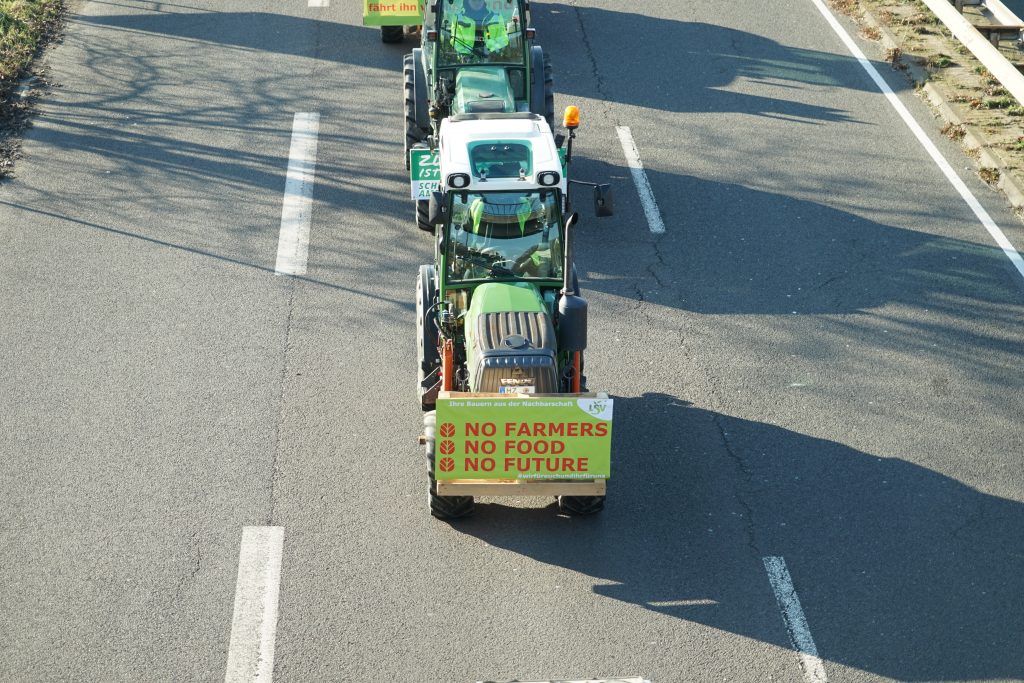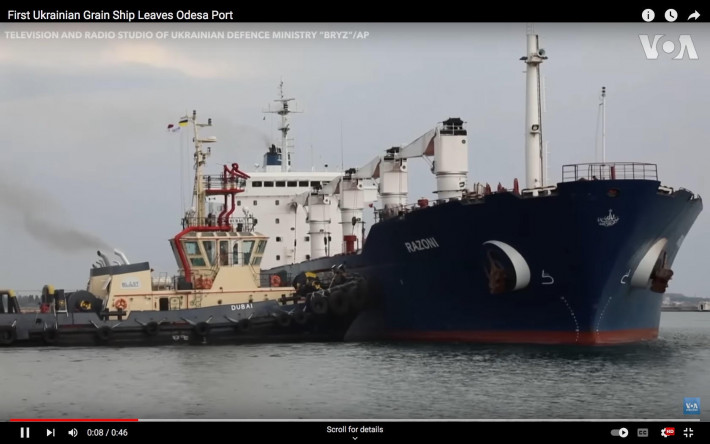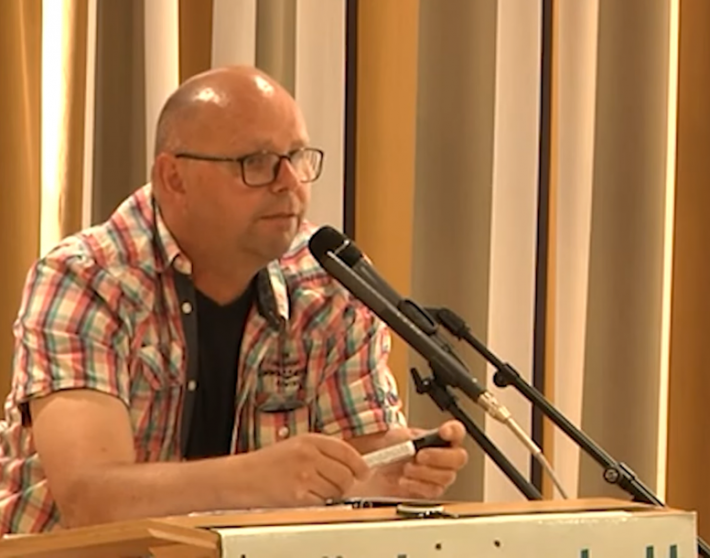Jan. 9, 2023—Yesterday in Germany tens of thousands of farmers and fellow demonstrators, with thousands of tractors and trucks, hit the streets in all 16 states, as day one in a week of action. This was an historic, breakthrough show of numbers and moral force. Joining with farmers were railroad workers, truckers, workers of all trades, businessmen, and more, all demanding an end to the government policies shutting down food production, hiking fuel and electricity prices, and gutting the economy.
Huge tractorcades and downtown rallies took place in scores of major cities Jan. 8 including Munich, Stuttgart, Dresden, Mainz and others, as well as at the Brandenburg Gate in Berlin, where the Jan. 8-15 action week will culminate in a mega-event on Monday. In Mainz, for example, there was a tractor and truck convoy 20 km long. Speakers at the rally included the state chairman of the farm group LsV (Country Creates Connection)—co-organizer of the national protest, the president of the Farmers and Winegrowers Association, the president of the German Hotel and Restaurant Association, and many others.
All demonstrations were extraordinarily well organized and disciplined, with full collaboration among farmers, truckers, police and the community. For example, the tractorcades left a lane open for through-transit of medical and other emergency vehicles.
This powerful show of force by farmers and the whole population demands the government commit to a full program to restore the economy. The government itself is on the line. One indicative banner stated, “They Don’t See; They Don’t Harvest; Yet They Think They Know Better” (against the government’s restrictions on farming, as well as fuel prices and tax hikes.)
Farmers, truckers and others elsewhere in Europe are following the German break-out closely, with farmers joining in from the Netherlands, Poland and Hungary.
A message of support to the German farmers was sent from the United States and circulated to many tractorcades on Day One. As of Jan. 9, 22 farm leaders from 14 states have signed onto the joint statement, first issued Jan. 6:

Let the Tractors Roll!
We U.S. farmers and ranchers send our support and admiration to German farmers and their co-demonstrators—truck drivers, railroad workers and all in the food chain—who are holding the Jan. 8-15 Week of Action in Germany. You have the guts and courage to defend the right to produce food, and demand a productive economy for all citizens. You are an inspiration and example to all farmers throughout the world, to activate and fight.
The German farmer rallies with thousands of tractors so far this Winter, from Berlin to Stuttgart, have put you on the front lines defending all humanity. The planned Jan. 15 Berlin mass rally is a world-important event. We have seen tens of thousands of farmers in Europe hit the streets in recent years because of the emergency; now is the breaking point.
Farmers all over the world are facing manipulation by the agro-financial-complex, of commodity conglomerates, controlled by London, Wall Street, Chicago, Amsterdam and other commodity financial centers. It is destroying family farming, reducing food production, driving up food prices, and perpetuating hunger. This globalist mechanism creates conditions for depopulation.
The German government is knowingly ruining family farm food production by hiking the diesel price, banning certain agro-inputs, taxing farm machinery, and other moves.
Farmers the world over are now standing up to this. We commit our support to defeat these enemies of humanity in 2024. We can work together to bring about development and peace for all, and total food security.
Let the tractors roll! We are alongside you in the cabs and on the streets!
Signators, as of Jan. 9:
Robert “Bob” Baker, Leesburg, Virginia – Former Grain and Livestock Producer; Director of Schiller Institute Agricultural Commission
Jon Baker, Harper, Iowa – Cattle and Grain Farmer; Agricultural Bank Vice President and Loan Officer; Vice President of the Iowa Stockgrowers Assoc.
James Benham, Versailles, Indiana – Former State President of the Indiana Farmers Union; National Board Member of the National Farmers Union
Bill Bullard, Billings, Montana – Chief Executive Officer, R-CALF USA (Ranchers-Cattlemen Action Legal Fund United Stockgrowers of America)
Mike Callicrate, Colorado Springs, Colorado – Cattleman; President and Founder, Ranch Foods Direct
Angel Cushing, Allen, Kansas – Goat Farmer; Independent Farm Activist against the Green New Deal / 30×30 land grab
Frank Endres, Corning, California – Wheat and Cattle Rancher; National Board Member of National Farmers Organization (NFO) and of R-CALF USA
Dr. Taylor Haynes, Laramie, Wyoming – Rancher; President, and on Board of Directors, Organization for Competitive Markets
Angela Huffman, Wharton, Ohio – Sheep Farmer; President of Farm Action
Tracy Hunt, Newcastle, Wyoming – Cattle Rancher; Farm Leader, Attorney (Retired)
Wilbur Kehrli, Manchester, Iowa – Cattle, Pigs and Grain Farmer Retired; Board of Directors of American Blue Cattle Association
Bill Kluck, Mud Butte, South Dakota – Sheep and Cattle Rancher; Chairman of Sheep Committee, R-CALF USA; Board of Directors of South Dakota Stockgrowers Assoc.
Vaughn Meyer, Reva, South Dakota – Cattle Rancher; Former President of the South Dakota Stockgrowers Assoc.; Former President of the Organization for Competitive Markets
Eric Nelson, Moville, Iowa – Farm/Feeder and Rancher; Vice President – R-CALF USA Director, Region VII (Minnesota, Iowa, Wisconsin)
Andrew Olson, Windom, Minnesota – Grain Producer; Farm Leader & Chairman of the Minnesota Schiller Institute Agricultural Commission
Mike Schultz, Brewster, Kansas – Rancher and Farmer; Vice-President of Organization for Competitive Markets
Matthew Steele, Manhattan, Kansas – Executive Director of the Kansas Cattlemen’s Association
Herman Steffen, Detour, Maryland – Beef Cattle and Grain Farmer; Farm Leader
Mike Weaver, Franklin, West Virginia – Board of Directors, & former President of Contract Poultry Growers Assoc. of the Virginias
Charles White, Fowlerville, Michigan – Dairy and Grain Farmer; Farm Leader
Tork Whisler and Sawyer Whisler, Washington, Iowa – Grain and Pork Producers; Farm Leaders; Founders of Barn Talk (on YouTube)
Ron Wieczorek, Mitchell, South Dakota – Rancher and Farm Leader; Former Candidate for U.S. Congress; Chairman of South Dakota Schiller Institute Agricultural Commission

















